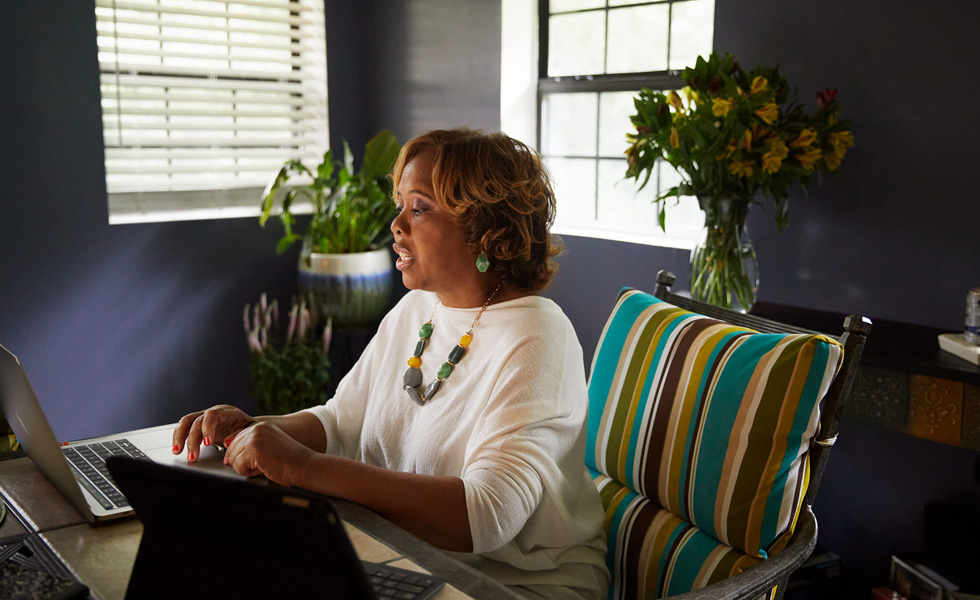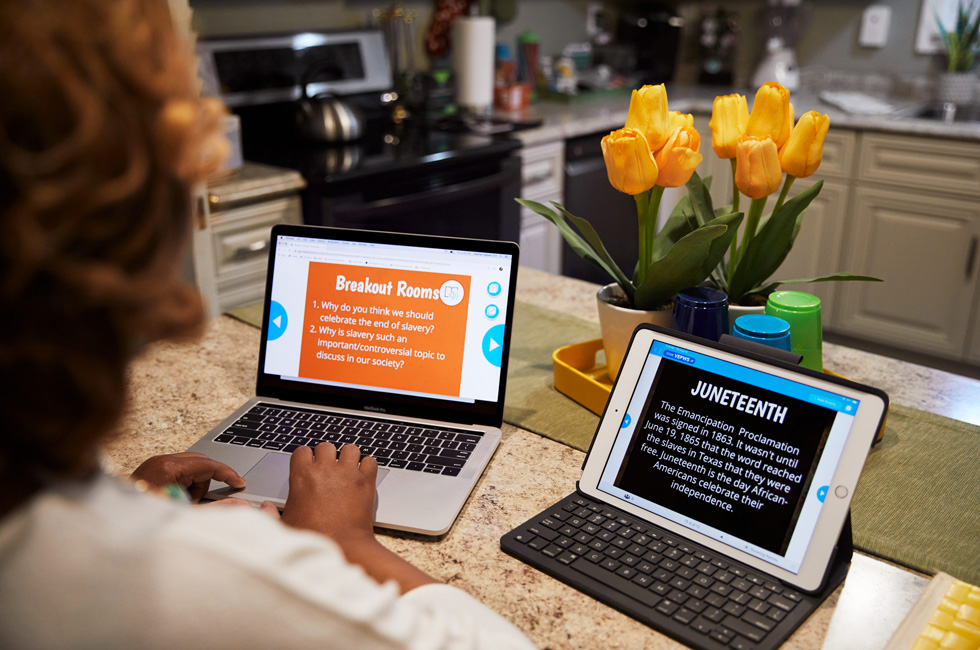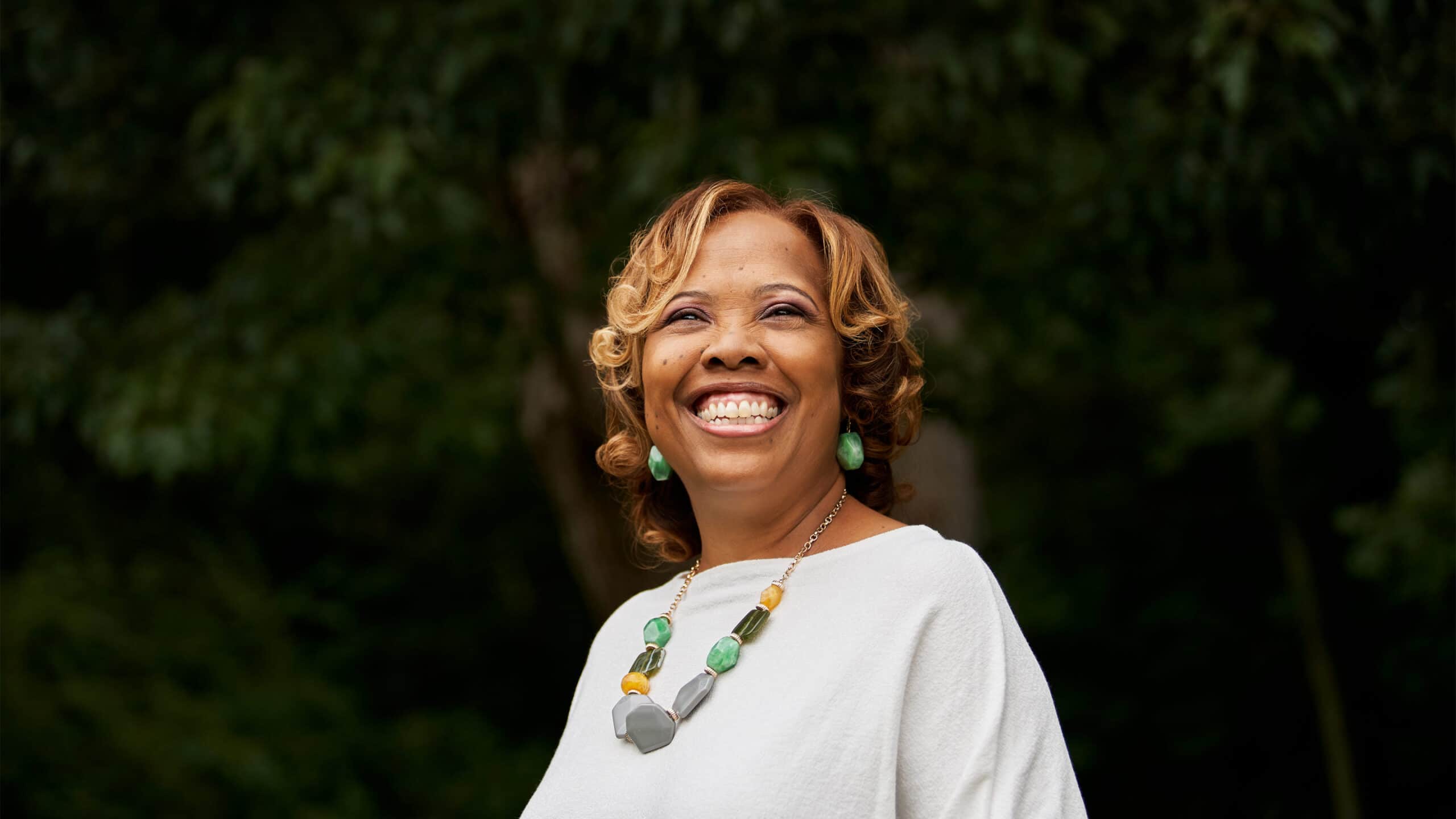As Birmingham City Schools fourth grade science and social studies teacher Portrice Warren gets ready to start her classes remotely, she is keenly aware of the challenges this year brings.“Planning is going to be a key factor for me as an educator, but I know Apple resources are helping give me the roadmap I can take moving forward with my students,” says Warren.
“I also know I have to keep myself balanced, because I’m going to have 64 students and 100-plus parents that I’m going to have to be a source of encouragement for.”Warren is one of nearly 500 educators who participated in a massive virtual coding academy this summer as part of Apple’s Community Education Initiative (CEI), designed to bring coding, creativity, and workforce development opportunities to learners of all ages and to communities that are traditionally underrepresented in technology.
Apple facilitates and supports CEI programming in 24 cities and regions across the US, 21 of which predominately serve majority Black and Brown students. As part of CEI, Apple also recently announced an expansion of its partnership with Historically Black Colleges and Universities.

The purpose of this year’s coding academy was not only to help educators learn the tools to code and teach coding, but to do so in an environment in which remote learning is considered the new norm.
It’s just one of the many ways that Apple is using its CEI program to help teachers prepare for a school year unlike any other — hosting opportunities for them to see what learning remotely will be like for their students, and troubleshooting issues before classes begin.
Throughout the weeklong virtual coding academy, Warren and the other educators took on the role of student and worked together remotely using Apple tools, including the Everyone Can Code and Develop in Swift curricula, to design apps that solve real-world problems, an approach called challenge-based learning.Warren believes challenge-based learning and the other Apple tools she used at the coding academy will be a game changer for her students and help her navigate the move to remote instruction.
“Especially now that we are transitioning to remote learning and students won’t be in the same physical classroom with their friends, challenge-based learning is going to be one of the tools that will take my students’ learning to the next level,” says Warren, who already incorporates Apple apps like Clips into her teaching.
“I see this method as a motivational tool. I can use Keynote throughout my curriculum to give students the freedom to take what they know and to use their own giftedness, their own learning style, to recreate knowledge in their own way.”
Ten years from now, I want my students to look back and see the powerful impact remote learning had on them, and that it was a positive transition.
Birmingham in Alabama has been part of the CEI program for the past year and serves as a model for what is possible when a community comes together with a shared mission.
Apple worked with the Birmingham City School System, the City of Birmingham, and other community and corporate partners to launch Ed Farm, a groundbreaking education initiative focused on bringing innovative learning strategies and coding opportunities to underserved communities across the city.
It’s through Ed Farm that teachers like Warren have had the opportunity to dive deeper into Apple’s coding and creativity tools, and collaborate with other teachers to integrate those resources into their lesson plans.Last year, Warren joined Ed Farm’s first cohort of Teacher Fellows — educators singled out because of their passion for creative learning techniques.
“The partnership with Ed Farm has given me that extra boost, that extra energy, to ignite my students’ learning in the classroom,” says Warren. “Since the pandemic started, they have been there every step of the way to help. I can reach back at any time and say, ‘Hey, I tried this and I learned this, but it’s not working. Can you give me some additional support?’
And I know they are alongside me.”Tapping into the technology and resources supported by CEI and Ed Farm, Warren and her Teacher Fellow peer Karita Sullen partnered with the Birmingham Civil Rights Institute to start a program called Cultivate Change, which helps students navigate racial tensions and communicate their feelings in a world where they are facing both a public health pandemic and systemic racial injustice.
“We wanted to give students a safe space because you don’t just learn about history in textbooks,” says Warren. “If in the midst of face-to-face confrontation they can apply some of the strategies they’re learning through these courses to problem-solve and survive some challenging things in their communities, then I think it’s all been worthwhile.”

Throughout the summer, the teachers hosted weekly remote meetings where students could voice their feelings and find support. Warren saw a change in one student, who had struggled academically during the school year, almost immediately.
“He felt a sense of success and a sense of responsibility — he didn’t miss a single meeting — and I thought, technology played a huge part in that,” says Warren, who plans to restart Cultivate Change once the fall semester begins.
“Because in person, he’s a little bit more reluctant, but I think this remote learning helped build his confidence to the point that he wanted to be a part of it.”In response to the COVID-19 pandemic, Apple also launched the CEI Learning Series, whereby hundreds of teachers from around the country can meet virtually to share best practices on remote learning.
Warren is already applying the tools and strategies she’s learned through Ed Farm and the CEI Coding Academy, and is looking forward to attending CEI Learning Series events scheduled for later this autumn.
After more than 30 years of teaching, she recognises the importance of this moment, and her mission.“Ten years from now, I want my students to look back and see the powerful impact remote learning had on them, and that it was a positive transition,” says Warren. “There are going to be a lot of challenges, but I won’t let my students fall through the cracks.
I know there is going to be a lot of hard work involved, but in the long run it will pay off. And that investment in their future is my purpose.”





